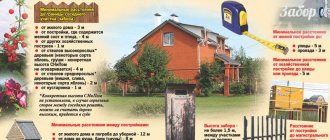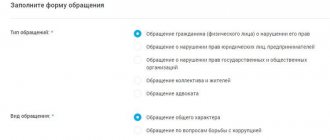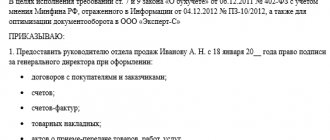Behind the scenes of the notary office. Inheritance
Lately, one can increasingly hear the myth that “a notary only puts a stamp and takes money for it.” This myth was not formed by chance, but precisely due to the fact that for the public the “visible” aspect of a notary’s activity remains only the “reception of citizens” as such, which is expressed in the fact that “the notary spoke, printed the document and put his seal and signature.” However, in addition to the “visible” aspect of a notary’s activity, there is also the so-called “behind the scenes”, which remains behind the scenes of the attention of citizens and other persons and which is not so obvious, but takes up a lot of time in the work of any notary.
“Behind the Scenes” - Part 2
What does a notary do when a person turns to him to formalize an inheritance case and to issue a “Certificate of Right to Inheritance”? What activities and services are provided to them?
1. The first thing any notarial action begins with is establishing the identity of the person applying. This function is implemented by notaries as follows:
A. Comparison of the identity of the person who contacted the notary with the photograph in the provided passport.
b. Checking the personal data of the person applying to the notary indicated in the presented passport in order to clarify and confirm them.
V. Checking the passport for its validity is carried out by a notary through a visual inspection of the integrity of the passport, as well as by sending a request to the FMS based on the passport data. (“expiration”, “loss”, “damage or destruction”).
Then, after the identity of the applicant has been established, the notary proceeds to establish the will of the person (i.e., his desire to draw up a specific document).
2. Establishing the will of the person. This function is implemented by notaries as follows:
A. During the conversation, the notary finds out what document the individual has applied for.
b. Does the individual voluntarily wish to draw up the document indicated by him, is he not mistaken in his desire, does the will of the person correspond to his actual intentions or the need for the situation that has developed for him.
V. During the conversation, the notary gives a legal assessment of the compliance of the will of the person applying for notarial action with the requirements of the law and the absence of illegal goals.
After establishing the identity and will of the person who applied to the notary, the next stage follows - an explanation of the legal consequences of the required notarial action.
3. Explanation of the legal consequences of the document being drawn up (notarial act). This function is implemented by notaries as follows:
A. The notary explains the legal meaning of this document (notarial act) and all its legal consequences that may occur in the future, after the document is executed (both in the case of acceptance of the inheritance and in the case of refusal to accept it).
b. A notary gives advice on the performance of a specific notarial act, the execution of a specific document for which an individual has applied.
V. Explains the requirements imposed by law regarding the procedure for drawing up a specific document and requests from the applicant all the necessary information (data) to include it in the text of the document.
After this, the notary checks for the presence/absence of factors influencing the possibility of performing this notarial action in relation to the applicant
4. Checking for the presence/absence of factors influencing the possibility of performing a notarial act. This function is implemented by notaries as follows:
A. The notary carries out an electronic request to check the legal capacity of the applicant (for the presence/absence of a procedure for declaring a citizen incompetent/not fully capable).
b. The notary makes an electronic request to check whether there is no bankruptcy procedure initiated against the applicant.
V. The notary checks for the presence/absence of threat/deception, misrepresentation/pressure and other circumstances affecting the free formation of the will of the person applying.
The notary checks for involvement in terrorist and extremist activities.
d. If a ready-made draft document is provided, the notary carries out a legal examination of the submitted draft document and establishes its compliance with the requirements of the current legislation and the actual intentions of the applicant.
E. When preparing individual notarial documents, the notary checks the fact of family relationships by sending an electronic request to the civil registry office, government agencies, institutions, credit and other organizations.
The next step in accepting an application for acceptance/refusal of accepting an inheritance is to request all the necessary information and documents necessary for the formation of an inheritance case.
5. Request for information and documents necessary for the formation of an inheritance case. This function is implemented by notaries as follows:
A. The notary requests from the heirs documents containing information necessary for the formation of the inheritance case, namely:
* Passport, SNILS - heir
* Death certificate - testator
* Certificate of place of registration (registration) of the testator
* Document confirming family relations (birth certificate/marriage certificate/certificate of paternity, etc.)
* Will (if available)
* Documents for property belonging to the deceased:
— For banks — savings books, cards, contracts, shares,
— For weapons — permission from the Russian Academy of Arts
— For motor transport - vehicle passport, vehicle registration certificate, self-propelled vehicle passport, assessment act/report
— For real estate — title document (agreement/certificate/decree/state act/certificate of the right to inheritance) + title document (Certificate of state registration of rights BTI/Certificate of state registration of rights Rosreestr/Extract from the Unified State Register of Real Estate)
b. Conducts legal examination of provided documents and studies them.
V. If any inconsistencies/shortcomings/inaccuracies are identified in the submitted documents, he conducts a consultation and explains the possible procedure for eliminating them.
d. Makes copies of the submitted documents to place them in the registered inheritance file.
The next step when performing a specific notarial act (certifying transactions) is drawing up the text of the document and its production on paper and/or electronic media.
6. Typing the required text of the requested document and then printing it.
7. After printing the document, the notary reads the prepared document aloud to the applicant and provides the opportunity to personally familiarize himself with the contents of the prepared document for its subsequent signing by the applicant.
8. The next stage is certification of the prepared document by a notary by affixing the notary’s signature on it and certifying it with an official seal.
9. After this, the notary registers the completed notarial act in the register of registration of notarial acts, in which the applicant signs for receipt of the executed document and payment of the fee.
10. The next stage is the actions of the notary aimed at entering into the unified notary databases in the Russian Federation.
The next step when performing a specific notarial act is the formation of an inheritance file and entering data on it into the registers.
11. Formation of an inheritance case and entering data on it into registers. This function is implemented as follows:
A. Data on persons who accepted an inheritance or refused an inheritance are entered into the Register Book of Inheritance Affairs.
b. Data about the opened inheritance case and about the deceased are entered in the Alphabetical Book of Inheritance Cases.
V. Formation of an inheritance case in a unified database of inheritance cases and its registration.
The next step when performing a specific notarial act is to carry out the necessary verification requests within the framework of the inheritance case.
12. Carrying out necessary verification requests. This function is implemented as follows:
a. The notary carries out the necessary requests to Rosreestr aimed at verifying the ownership of real estate by the deceased and establishing compliance of the submitted documents with Rosreestr data.
b. The notary makes a request to Sberbank aimed at checking the presence/absence of any accounts/deposits of the deceased and the presence of funds on them that are subject to inheritance.
V. The notary makes the necessary requests to other institutions (Pension Fund, Social Security, other banks (except Sb), Registrar services (regarding shares/bonds) by mail.
d. If necessary, the notary searches for/notifies other heirs by posting a corresponding announcement on the FNP website.
The next step when performing a specific notarial act is to study all the responses received on previously completed requests.
13. Study of all responses received from various organizations.
14. Preparation based on the information available in the materials of the inheritance file - “Certificates of the right to inheritance”
15. Notification of all heirs who accepted the inheritance about the time, date and place of issuance of the “Certificate of the right to inheritance” and about the required price to be paid for the work done on the inheritance matter.
16. Issuance of “Certificates of the right to inheritance” to the heirs with the simultaneous creation of an electronic scanned image of the document and sending it to Rosreestr for registration of the right.
17. Receiving a response from Rosreestr about registration/suspension/refusal of registration and resolving this issue.
18. Certification and issuance of an “Extract from the Unified State Register of Real Estate” to all heirs who accepted the inheritance.
19. After this, the notary registers the completed notarial act in the register of registration of notarial acts, in which the applicant signs for receipt of the executed document and payment of the fee.
20. The next stage is the actions of the notary aimed at entering into the unified notary databases in the Russian Federation.
Based on the above, we can draw the following conclusion:
The activities of a notary are not at all limited to “affixing a signature and seal” on a document, but include a whole range of services provided within the framework of a specific notarial act.
Responsibility of a notary
The innovation with the mandatory affixing of a QR on a document certified by a notary reduces to zero the possibility of falsification both on the part of fraudsters and on the part of the notaries themselves. You can now check whether the data has been entered into the UIS in a few seconds.
But the legislation does not relieve notaries of responsibility for incorrectly entered data into a document, intentional inaccuracies or careless errors. Slightly different legislative measures apply to specialists in private practice and government offices.
Leading a private practice
In accordance with Article 17 of the Fundamentals of Notaries, specialists who conduct private practice bear full financial responsibility for their actions. Punishment may follow if:
- the client suffered material damage due to the use of unlawful actions by a private notary;
- private information was disclosed;
- the specialist unlawfully refused the applicant to perform a notarial act.
In all cases, the notary's guilt must be proven.
Damage is compensated through the civil liability insurance of the notary officer. If the insured amount is insufficient, the remainder is compensated by the property of the at-fault specialist.
Working in a state notary office
Civil servants of notary offices are responsible for causing material damage to the client within the framework of labor legislation. Actual compensation for material or property damage is reimbursed by the employer, namely the territorial justice body .
A state notary can be held liable for full financial liability if he:
- committed intentional illegal actions, causing harm to the employer;
- disclosed important and secret information that is protected by law;
- caused damage while under the influence of alcohol or drugs;
- committed illegal actions confirmed by a court verdict.
Civil servants may be held liable for compensation for actual damages and moral damages. For abuse of the powers of a specialist, state offices may be subject to criminal liability under Article 202 of the Criminal Code of the Russian Federation.
When can a court decision in absentia be applied and within what time frame can it be appealed?
Read
Actions of the debtor that interrupt the limitation period
Read
Remote transaction verification
Soon Russians will be able to appreciate another convenient notarial innovation - remote certification of a transaction. This service is needed in a situation where the parties to the contract are located in different regions of Russia and do not want to waste time and money on travel and meetings. They can simply contact notaries in their cities, and they will carry out all the checks and procedures required by law, certifying the remote transaction. The entire process of certifying the contract will take place online through a special secure communication channel for notaries, which eliminates the possibility of document forgery.








